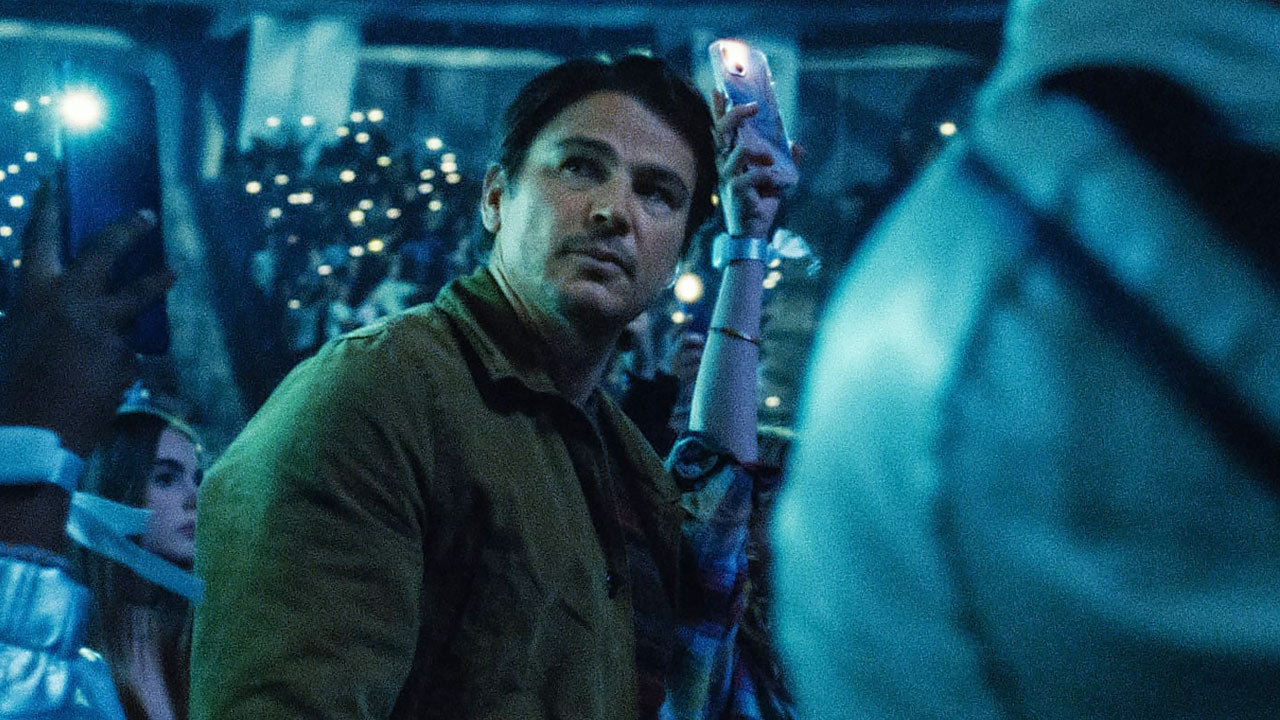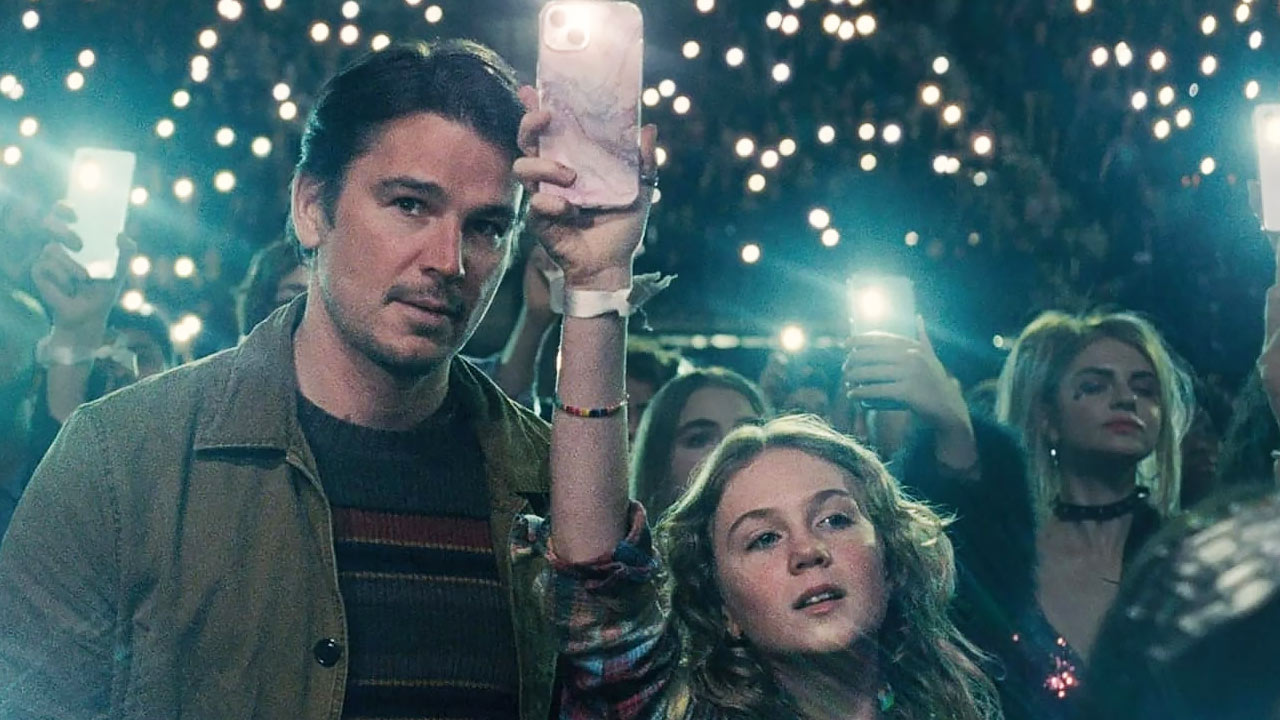Trap starts strong but becomes a monumentally preposterous thriller

We’re accustomed to silly films from M. Night Shyamalan, but Luke Buckmaster was still taken back by the director’s latest thriller, which re-establishes him as “one of cinema’s most aggravatingly inconsistent talents.”
Trap (2024)
Night Shyamalan is famous for his twists, but it’s the premise of his new film that gets people talking. Josh Hartnett plays a serial killer who discovers the pop culture concert he’s attending has been staged to trap him. Just that short synopsis presents a bit to think about, correctly inferring that the bad guy in Trap is the protagonist—which alone is unconventional—and inferring that, for him, reality might be a series of bendable constructs, engineered for this own demise: one giant feat of cosmic gaslighting.
Sadly, however, this great premise—the director pitching it as “The Silence of the Lambs at a Taylor Swift concert”—is the best thing about an aggravatingly written and almost unbelievably stupid movie, featuring a Jenga stack of preposterous plot developments that, after the buzz of an initially entertaining first act, come crashing to the ground, one patience-stretching twist following another. Shyamalan again re-establishes himself as one of cinema’s most aggravatingly inconsistent talents. His previous production was last year’s Knock at the Cabin: a grippingly surreal chamber piece about, as I wrote in an effusively positive piece, “the end of consensus reality.”
That film had a weirdly intoxicating glint in its eyes, exploiting the hard to define feeling that reality isn’t what it used to be. This one seems to have been written in alphabet spaghetti. But at least Trap starts strong, boosted rather than reduced by the viewer’s knowledge about the nature of the concert, placing them one step ahead of the protagonist. In its early moments I enjoyed watching Hartnett’s Cooper aka “The Butcher,” who attends the concert with his ecstatically excited daughter Riley (Ariel Donoghue), ascertain that something about the event is off (mainly by noticing an unusually high number of police) then discovering the nature of his predicament.
This realisation could’ve been delayed a little longer, a staff member at the stadium early on excitedly spilling the beans early on that “this whole concert, it’s a trap!” The way this chap blabbers narratively pertinent information to Cooper, including how exiting the venue is impossible other than via backstage, feels pretty shameless—super lazy screenwriting—but by god there’s more where that came from.
I was happy to go with Trap for a while, even as credulity-stretching incidents starting piling on. The quick-thinking Cooper—who has the intelligence of MacGyver and the bullshitting bravado of Axel Foley—demonstrates a remarkable ability to talk his way in and out of any situation and ascertain access to anywhere in the building. Which is a bit silly but not unforgivably so. After a while however his actions become so dramatically expedient they don’t even feel character based, don’t even feel that they’re his. The script keeps handing him easy wins and the universe seems to be saying “you are the luckiest person who ever lived.”

Things get progressively more ludicrous, for reasons that would surely constitute spoilers, so I’ll avoid going into details. The number of characters behaving illogically also increases. The cops have a serial killer profiler in the building, Hayley Mills’ Dr. Grant, who’s practically clairvoyant in her ability to read Cooper’s mind and second-guess his behaviour, broadcasting her commentary via police walkie-talkie. “He’s realised he can’t get out. He’s going to try to cause chaos” she says, at the exact moment that Cooper has his fingers on a fire alarm, about to set it off.
In the film’s second half Shyamalan carves out the closest character Trap has to a hero (the identity of whom should not be revealed) who is assigned some awful dialogue and behaves in ways that feel utterly ridiculous; I made various incredulous-sounding noises in the cinema and was proud of myself for not screaming out “YOU CAN’T BE SERIOUS?!” The last act goes on and on and on, changing settings and losing the film’s initial albeit shortlasting charge, coughing and spluttering like a broken-down vehicle.
Decent thrillers can be derailed by a single implausible event; this film feels as though it has a million of them. It’s based in a bizarro parallel world where nothing makes sense or rings true. But it’s not Kafkaesque, or anything that might suggest some kind of surreal justification; it’s just plain stupid. The one really impressive thing Trap does have going for it is a strangely impressive performance from Hartnett; strange because he emotes a surprising amount of gravitas, holding his own while everrything else collapses around him.




















